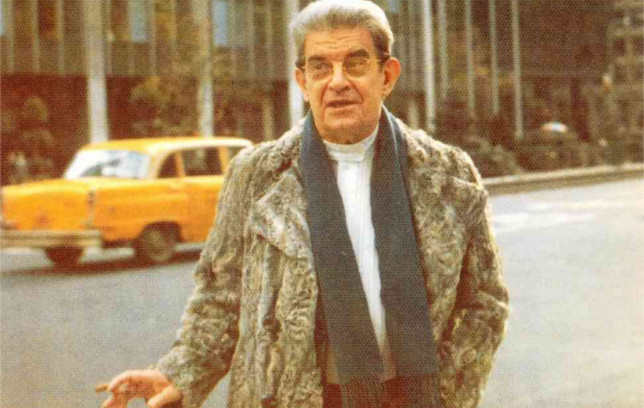I recently received a phone call from someone who found my profile on Psychology  Today. A woman, speaking in Russian, told me she has abdominal pains, and asked if I am a therapist. I told her that yes, I am a psychotherapist. She was not satisfied: “But are you a doctor therapist?” (Врач Терапевт in Russian). I explained to her that I am not a medical doctor, but that I do work with psychosomatic and stress related issues. She apologized, and quickly hung up.
Today. A woman, speaking in Russian, told me she has abdominal pains, and asked if I am a therapist. I told her that yes, I am a psychotherapist. She was not satisfied: “But are you a doctor therapist?” (Врач Терапевт in Russian). I explained to her that I am not a medical doctor, but that I do work with psychosomatic and stress related issues. She apologized, and quickly hung up.
While it is possible that this woman was seeking a doctor for pains that she believed to be purely physical in origin, the fact is that she used the Psychology Today database, which lists only mental health practitioners, indicates that she had some intention of treating her condition as psychosomatic. In asking if I am a doctor, she was likely referring to a medical doctor or a psychiatrist (Russian speakers usually do not refer to PhDs in Psychology as doctors). If this is indeed the case, the situation is symptomatic of the kind of medicalization discourse that dominates the treatment of psychosomatic conditions.
I increasingly observe medical research and centers dedicated to the treatment of psychosomatic issues, but almost no representation of such issues in the mental health system. The so-called field of holistic medicine takes pride in all-encompassing approaches to health, but they are often inaccessible, and lack any resemblance of scientific processes. The lack of a unifying theoretical approach, and often-mystified Eastern practices, renders it even more difficult for this group to escape the grip of marginality and obscurity.
Some of the more scientifically oriented approaches, which attempt to mix all existing research together under the pretext of objective neutrality, also appears to have hit the wall. I think the fall of the Titan of empty, empiricist, neuropsychosmatic theory, Bessel van der Kolk, is a symbolic event in the world of the American psychosomatics. He was fired from the position of a medical director that he was holding for workplace harassment of female coworkers. I believe that such opportunists appearing as leaders in the field is symptomatic of the lack of a coherent scientific process oriented towards developing a theory that would deal with the subject in relation to the body. Unfortunately, true scientific process is often substituted with the rule of “experts”, who often appear as figures possessed with ultimate authority, thus further mystifying the field.
Historically, psychoanalysis played an important institutional role as the grand “theory of everything” in the treatment of psychosomatics symptoms, but it has lost almost all influence in the medical field. These days, psychoanalysts seem to share the commonly held belief that psychosomatic problems are mostly related to phantom projections, and ought to be treated as fantasies with little significant material effect on the body. Juxtaposed to such dismissive attitude are medics, who tend to forget about the causes of a problem once it becomes life threatening or debilitating. Mental health is reserved for treating the “stress caused by the medical condition”, rather than the condition itself. It is frequently believed that a mental health practitioner cannot help cure somatic illnesses, reducing their role to aiding the patient in coping with re-adjustment after medical procedures and stressful life changes.
So, the question is: can psychotherapists play a more substantial role in curing psychosomatic conditions? French psychoanalyst Jacques Lacan claimed that there is a reason to believe that psychoanalysis can be of help, even when the impact of psychosomatic symptoms is very real in the body. He insists that psychosomatic neurosis is always related to some kind of traumatic excess that lies beyond the individual’s ability to speak it. Lacan invented the concept of the Real with a capital R to signify the part of our psyche that cannot be imagined or conceived in thought by the conscious subject but must inevitably be dealt with by every speaking being. He claims that psychosomatic problems emerge when there is something traumatic in our psyche that resists integration into our understanding of ourselves and the world. Psychic sexual energy affects the internal processes of our body in unpredictable ways, as they are dragged into unconscious conflicts that form around this traumatic kernel that resists symbolization.

Lacan was a structuralist who claimed that language plays a central role in structuring of the psyche, but he also was against mind body dualism, and demonstrated how language has very material effects through the way it structures our drives and enjoyment. Lacan argued that psychosomatic problems appear when something that is situated beyond the reach of language interferes with the functioning of signifying chains in our psyche. For Lacan, what is situated beyond language points to the limits and lacks in our symbolic understanding of the world. The fundamentally important thing is how one copes with these gaps. In case of psychosomatic complaints, the subject is coping with unresolved traumatic experience, by repeatedly re-traumatizing his/her body in ways that cannot be even traced until they cause serious medical problems. How the psyche affects internal bodily processes remains largely unknown, but there has been increasing interest in this subject.
Psychosomatic conditions, if truly caused by psychological trauma, cannot be easily cured through medical interventions. Fixation of traumatic libidinal energy can relocate to a different organ if the previous one is unable to hold tension after medical intervention. I have worked with numerous clients with trauma history whose psychosomatic problems transformed but did not disappear after surgeries, and in some cases got even worse.
If Lacan’s claims are true, the psychoanalytic approach should be as important in treating psychosomatic problems as it is in the treatment of psychological traumatism. Approaching psychosomatic problems from the psychoanalytic perspective allows one to work with the underlying libidinal economy, which I believe is the way to the cure. I will be writing more on psychoanalytic work with trauma and the body in future posts.


Nice!
LikeLike